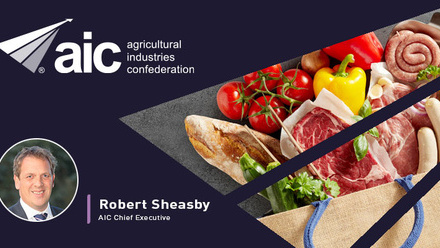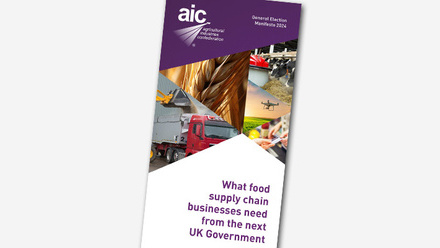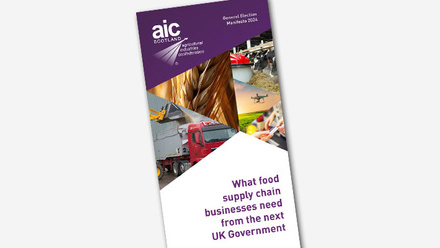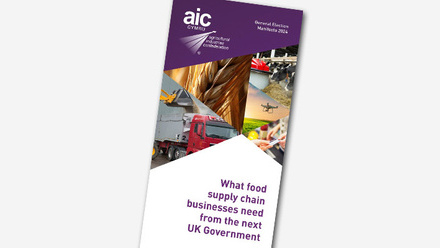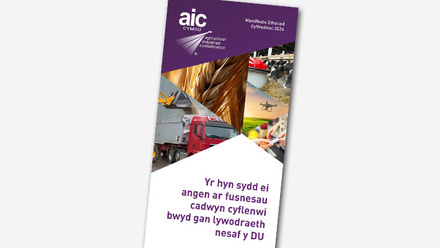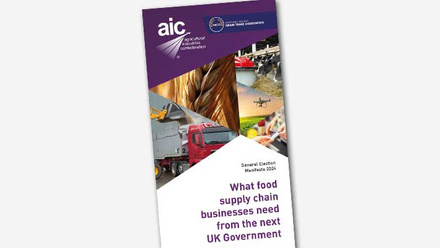Blog: How a standardised approach to sustainability data can give UK agri-food supply chains confidence to invest
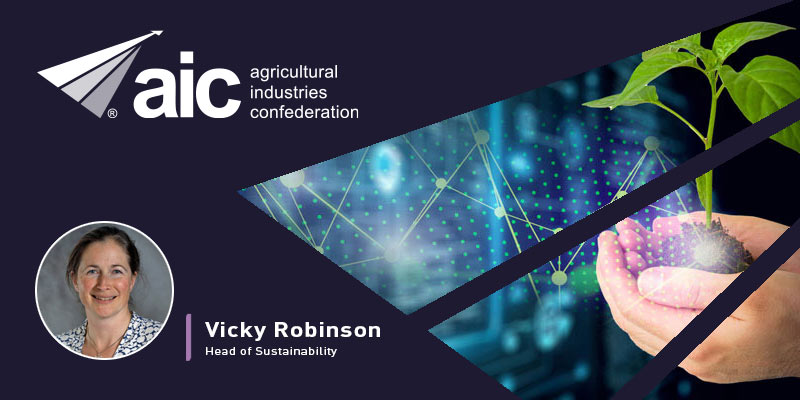
The sustainability agenda has evolved, as has the data required to evidence action and impact. The result is an inconsistent, often siloed approach to reporting creating frustration and resource pressures for businesses. The next UK Government can support food supply chains by working with industry to agree a standardised approach, as AIC’s Head of Sustainability Vicky Robinson explains.
In my role at the Agricultural Industries Confederation (AIC), I see firsthand the efforts our Members are making to enhance sustainability within their businesses and within the vital role they play in the many supply chains which make up our food system.
Our industry is at the forefront of integrating environmental stewardship, social responsibility, and sound governance practices. However, these efforts are being hampered by a fragmented and inconsistent approach to sustainability data collection and reporting.
Data duplication
Currently, our Member businesses face a wide range of data reporting requirements spanning pollution, water usage, biodiversity, climate impact, packaging, deforestation, and energy consumption.
This is on top of other obligations on modern slavery, health and safety, and manufactured tonnages. The duplication of data submissions to numerous UK Government departments and bodies, particularly the Environment Agency, creates major inefficiencies and frustration.
The increasing requests for data both from the Government and through the supply chain is placing a growing demand on resources to make sure the internal processes and systems are in place.
Constant delays and changes to reporting requirements not only drain resources but also diminish the confidence of businesses to invest in sustainable practices.
Standardised approach
Consistent and accurate information is essential to building credibility and confidence in sustainability claims.
Consumers and supply chains alike are demanding higher transparency regarding sustainability credentials at both product and business levels.
A standardised approach for gathering sustainability metrics is crucial if we are to truly meet these demands.
What businesses need from the next UK Government
AIC urges the next UK Government to undertake a comprehensive review and streamlining of the current approach to sustainability data collection.
This means:
- Standardising data requirements: Establishing uniform data submission requirements across the different government departments and bodies to eliminate redundancy and ensure clarity.
- Streamlining the reporting process: Simplifying the reporting process to make it less onerous and clearer for businesses, thereby encouraging greater investment in systems to support reporting.
- Tackling the siloed approach: Encouraging inter-departmental coordination within Whitehall and the many government agencies will mean that businesses aren’t burdened with repetitive or similar data reporting.
Early steps
AIC is involved in the Food Data Transparency Partnership (FDTP), a collaboration between government and industry which aims to improve the transparency and efficiency of food data collection.
While this is a positive early step in the right direction, more needs to be done.
Taking the FDTP's ambitions and running with them, the Government can ensure that UK agriculture remains competitive and is not disadvantaged by inconsistent data requirements.
A streamlined approach would not only benefit businesses by reducing administrative burdens but also enhance the credibility of sustainability claims made within the food system.
Investment and clarity
According to a recently published independent report by the Institute for Public Policy Research (IPPR), the UK has the lowest rate of business investment among G7 nations, including in decarbonisation efforts.
This lack of investment is a result of the uncertainty and complexity in the current regulatory environment.
AIC Members regularly share with us how this uncertainty is preventing them from confidently allocating resources towards sustainable practices.
A streamlined approach to sustainability data collection is a vital step towards ensuring the long-term viability and competitiveness of UK food supply chains - from pre-farm suppliers to processors, retailers and hospitality.
By reducing the burden of data duplication and providing clear, consistent metrics, the next UK Government can foster an environment where businesses finally have the confidence to invest in sustainability, driving us towards our net zero ambitions.
AIC is ready to work alongside the Government and industry partners to achieve this as we strive for a more sustainable and prosperous future for UK agriculture.
More on AIC's manifesto
For more on the AIC 2024 General Election Manifesto - "What food supply chain businesses need from the next UK Government" - visit the election webpage, or click below to view and download a copy.



